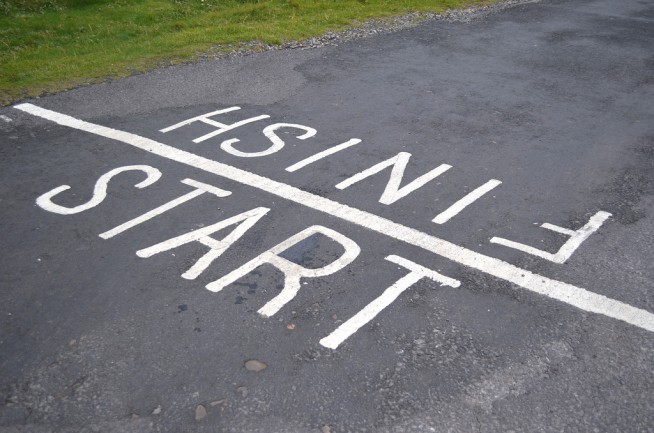One thing that took me a long time to realize, in the study of habits: the danger of finish lines.
Setting a finish line does indeed help people reach a goal, but although it’s widely assumed to help habit-formation, the reward of hitting a specific goal actually can undermine habits.
A finish line marks a stopping point, and once we stop, we must start over, and starting over is harder than starting.
The more dramatic the goal, the more decisive the end—and the more effort required to start over. By providing a specific goal, a temporary motivation, and requiring a new “start” once reached, hitting a milestone may interfere with habit-formation.
Also, once we decide that we’ve achieved success, we tend to stop moving forward. @gretchenrubin
(Click to Tweet!)
Even an intermediate finish line can interfere with good habits. In a letter, novelist Kurt Vonnegut advised his son Mark:
“I have seen a lot of writers stop writing or at least slow down after getting an advance. They have a feeling of completion after making a deal. That’s bad news creatively…I advise you to carry on without an advance, without that false feeling of completion.”
Have you ever found that hitting a finish line meant that you stopped do something, even though you’d been doing it successfully to that point? That you thought you’d been forging a habit, but it turned out not to be?
Gretchen Rubin is the author of the #1 New York Times Bestseller The Happiness Project—an account of the year she spent test-driving the wisdom of the ages, current scientific studies, and lessons from popular culture about how to be happier—and the recently released Happier at Home. On her popular blog, The Happiness Project, she reports on her daily adventures in the pursuit of happiness. For more doses of happiness and other happenings, follow Gretchen on Facebook and Twitter.
Image courtesy of Andrew Hurley.












